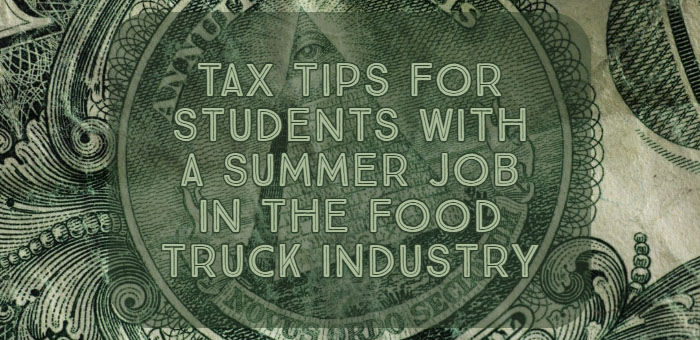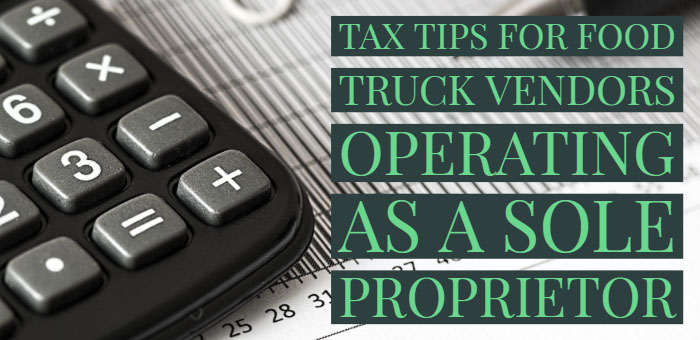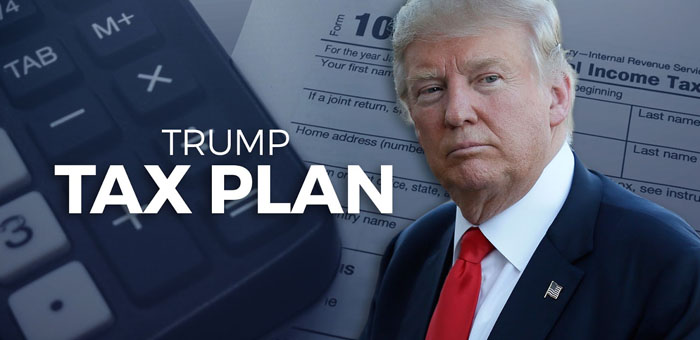Are you a student who is earning extra cash in a food truck this summer? As the economy picks up, young people 18 and older are finding work in a variety of roles in the mobile food industry during the summer months, earning enough to prompt a lesson in paying taxes. Even if your only income for the year is from a summer job in a food truck, here are a few tips that will help you get a handle on taxes.
Summer Job Tax Tips
As the food truck industry grows many students get summer jobs with food truck vendors. It’s a great way to earn extra spending money or to save for later.
Withholding and Estimated Tax
If you are an employee, your employer withholds tax from your paychecks. If you are self-employed, you may have to pay estimated tax directly to the IRS on set dates during the year. This is how our pay-as-you-go tax system works.
New Employees
When you get a new job, you will need to fill out a Form W-4, Employee’s Withholding Allowance Certificate. Food truck employers use it to figure how much federal income tax to withhold from your pay. The IRS Withholding Calculator tool from the IRS can help you fill out the form.
Tip Income
All tip income is taxable. Keep a daily log to keep track of the tips you earn. You must report $20 or more in cash tips in any one month to your employer. And you must report all of your yearly tips on your tax return.
Payroll Taxes
You may earn too little from your summer food truck job to owe income tax. But your employer usually must withhold social security and Medicare taxes from your pay. If you’re self-employed, you may have to pay them yourself. They count for your coverage under the Social Security system.
Use IRS Free File
You can prepare and e-file your tax return for free using IRS Free File. It is only available on IRS.gov. You may not earn enough money to be required to file a federal tax return. Even if that is true, you may still want to file. For example, if your employer withheld income tax from your pay, you will have to file a return to get a tax refund.
Please Note: The definition of state residency can vary from state to state, and you will have to pay state taxes to each state that you are a resident of during the Tax Year. If you live in one state but attend college in another, make sure to check the residency requirements.
Visit IRS.gov for more about the tax rules for students.
Tax Advantages For Hiring Your Own Child
If you operate your food truck as a sole proprietorship, as a single-member LLC, a husband-wife partnership, or as an LLC that is treated as a husband-wife partnership. We have great news for you.
You can hire your under age 18 child and their wages will be exempt from Social Security tax, Medicare tax, and federal unemployment (FUTA) tax. In fact, the FUTA tax exemption lasts until your employee-child reaches age 21. You can hire your child part-time, full-time, or whatever works for you and the kid.
RELATED: Understanding How FUTA Affects Your Food Truck
Thanks to the Tax Cuts and Jobs Act (TCJA), in 2018, your child will owe nothing to the federal government on the first $12,000 of wages, unless they have income from other sources.
The Bottom Line
All your plans for earning money this summer are great, even though taxes could take a bite out of your paycheck. The good news is that a summer job in a food truck is not likely to result in you having to pay taxes or even file a return. Nevertheless, you should still plan on filing a tax return, so you can get back any taxes you may have paid. Making money is smart; keeping more of it in your pocket is even smarter.
Do you have any additional summer job tax tips? Share your thoughts on this topic in the comment section or social media. Facebook | Twitter
If you are still looking for summer help in your food truck, post your jobs with us at Food Truck Jobs.
Disclaimer: The tax advice included in this article is an overview of some complex tax rules and is not intended as a thorough in-depth analysis of the tax issues discussed. Do not act on the information included in this article without first determining how these issues apply to you and if there are any special tax laws or regulations that might apply to your situation.




